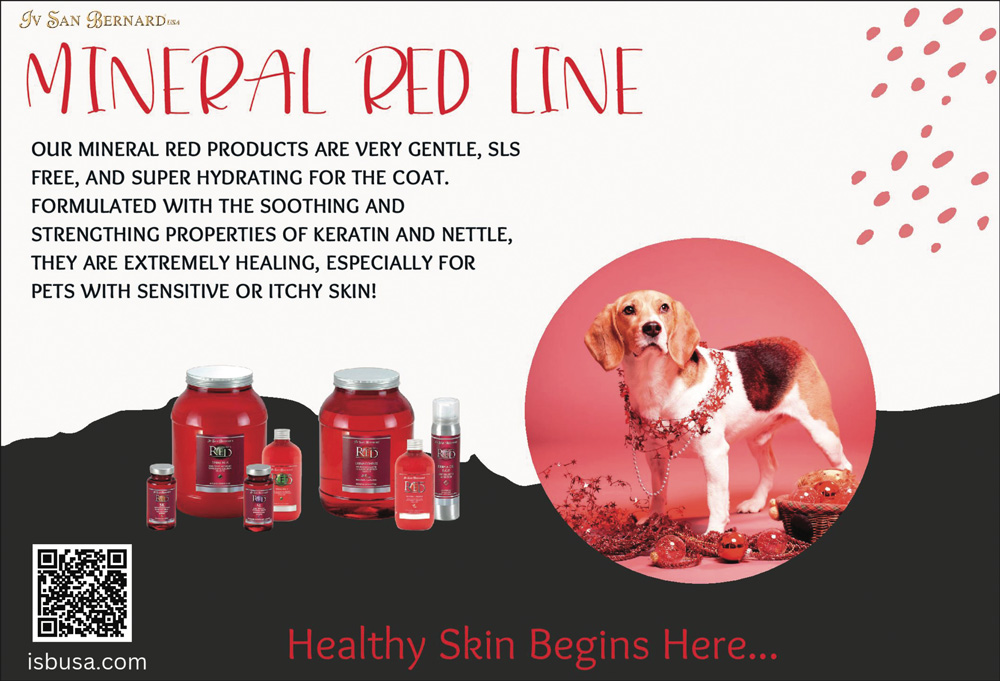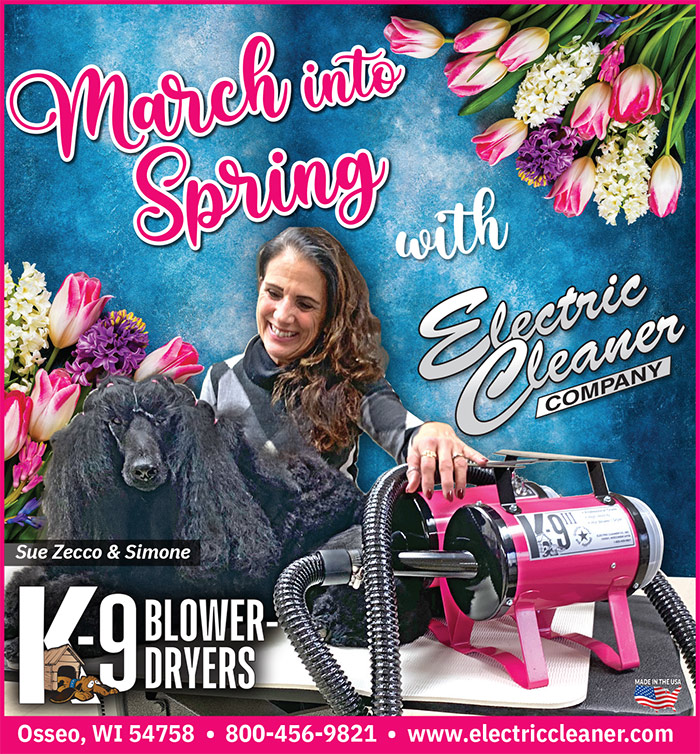
 ometimes we take for granted the effects that marketing has on what we think and believe. We hear some of these terms so many times that we start believing they are important…whether we know what they mean or not.
ometimes we take for granted the effects that marketing has on what we think and believe. We hear some of these terms so many times that we start believing they are important…whether we know what they mean or not.
I am commonly asked at tradeshows for a holistic shampoo. My question is always, “What is your definition of holistic?” Some typical responses are “all natural,” “scent free,” “chemical free” or “preservative free.” However, what most don’t realize is that all of those are also marketing terms. There are no laws or regulations that apply to pet grooming products which standardize those terms. They are all terms we hear commonly and believe them to mean something.
So, what is the true definition of holistic? In simple terms, it is a matter of taking care of the whole, not just the individual parts. In medicine, we simplify it to mean taking care of the mind, body and soul…and I am still looking for that product that affects the soul of the pet.
On the other hand, being a holistic groomer is a different story. We can talk about a holistic approach to grooming, or we can holistically take care of ourselves as groomers (or veterinarians).
A holistic approach to grooming is when we look at the body of the pet as a whole. That means when we groom, we have a quiet, non-stressful environment where the pets are handled with care and love. We use the best products that are non-irritating for the health of the skin and hair. We use warm water (and warm towels) to not let the pets get cold. We use dryers that are not loud and don’t blow the hair against the grain which may be uncomfortable. When we see skin problems, we realize that we need to look at the dog as an individual and be aware that problems could involve either inside or outside (or both) issues which may require working with the vet for a positive resolution. This is a natural approach of many groomers when caring for the pets.

If any of those points hit home, it’s time to do some self-evaluation. The common theme here is cutting out stress. What is it that stresses you? The first step in solving any problem is defining the problem. Once I find the problem, the biggest stress for me is struggling with not knowing how to fix the problem. The solution here is to get help, seek more education or address the problem (or stop ignoring it). You don’t have to do this by yourself. Investing in expert help or continuing your education are two of the best solutions for your health and wellbeing. You can’t be great at everything. You will find the most successful people are the ones that aren’t afraid to seek out help when they need it.
The other major word of advice is, if you have a problem, don’t ignore it; address it. And, the quicker, the better. Most of us have complained about the terrible culture we have at our workplace…Stop and think about that statement—we complained! Instead of doing things to fix it, we would rather complain about it. If you are not part of the solution, you are part of the problem! Be proactive and work to solve the issues at hand. The culture of our work environment is probably the biggest positive or negative in our lives. Most of us spend more time at work than we do at home, so try to make it a happy place.
- When other employees are negative, simply walk away and don’t engage in the drama (pets understand this better than we do). Office drama drops rapidly when no one listens to it.
- If a client wants special privileges, such as drop-off or pick-up after hours, don’t say no! Instead, say yes, this is what I charge and these are my boundaries. The true secret is to make that cost high enough that you are happy to do it for that amount. “Staying late? No problem! My standard extra charge is $100 ($150 if not pre-arranged) for the first half hour and $50 every 15 minutes after that, and I will need the first $100 to reserve it.” Are those charges unrealistic? Probably, but you didn’t say no. The client then has to decide if it is worth it. You must state these policies in advance though; it’s not meant to be punishment, it is meant to be a deterrent.
I do think practicing holistic grooming is important; however, it is not about a product, but instead it is about how you approach your world. The most important thing you can do is to take care of yourself first so that you can help others with a healthy mind, body and soul.
Dr. Cliff Faver graduated with a BS in Biology/BA in Chemistry before getting a Veterinary degree in 1987. He is the past owner of Animal Health Services in Cave Creek, Arizona and now the US distributor for Iv San Bernard products, teaches the ISB Pet Aesthetician Certification program, and speaks internationally on hair and skin. His passion is to merge groomers and veterinarians to aid in helping and healing pets. He is also a member of AVMA, AAHA, AZVMA, Board member with Burbank Kennel Club, and has served on Novartis Lead Committee, Hill’s International Global Veterinary Board, and a Veterinary Management Group.


